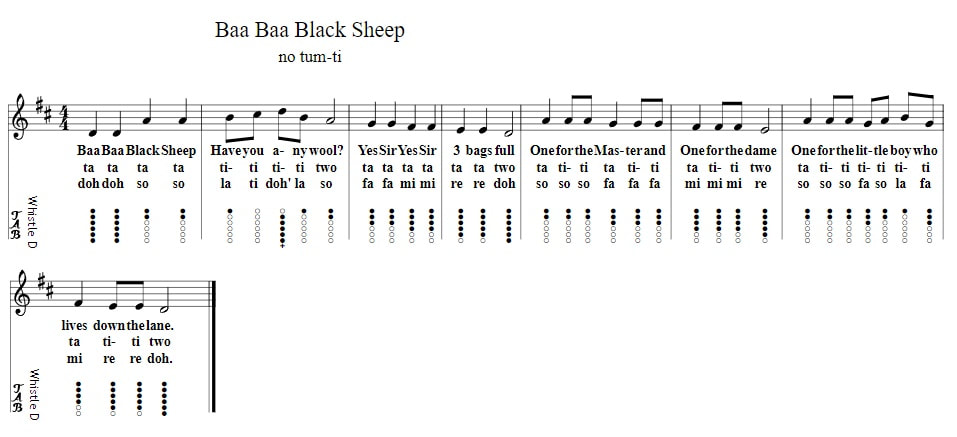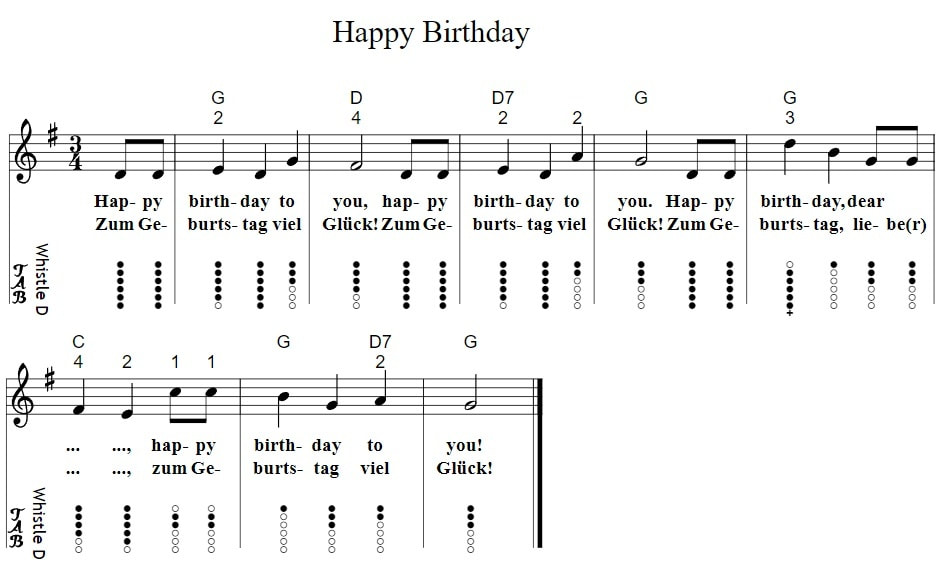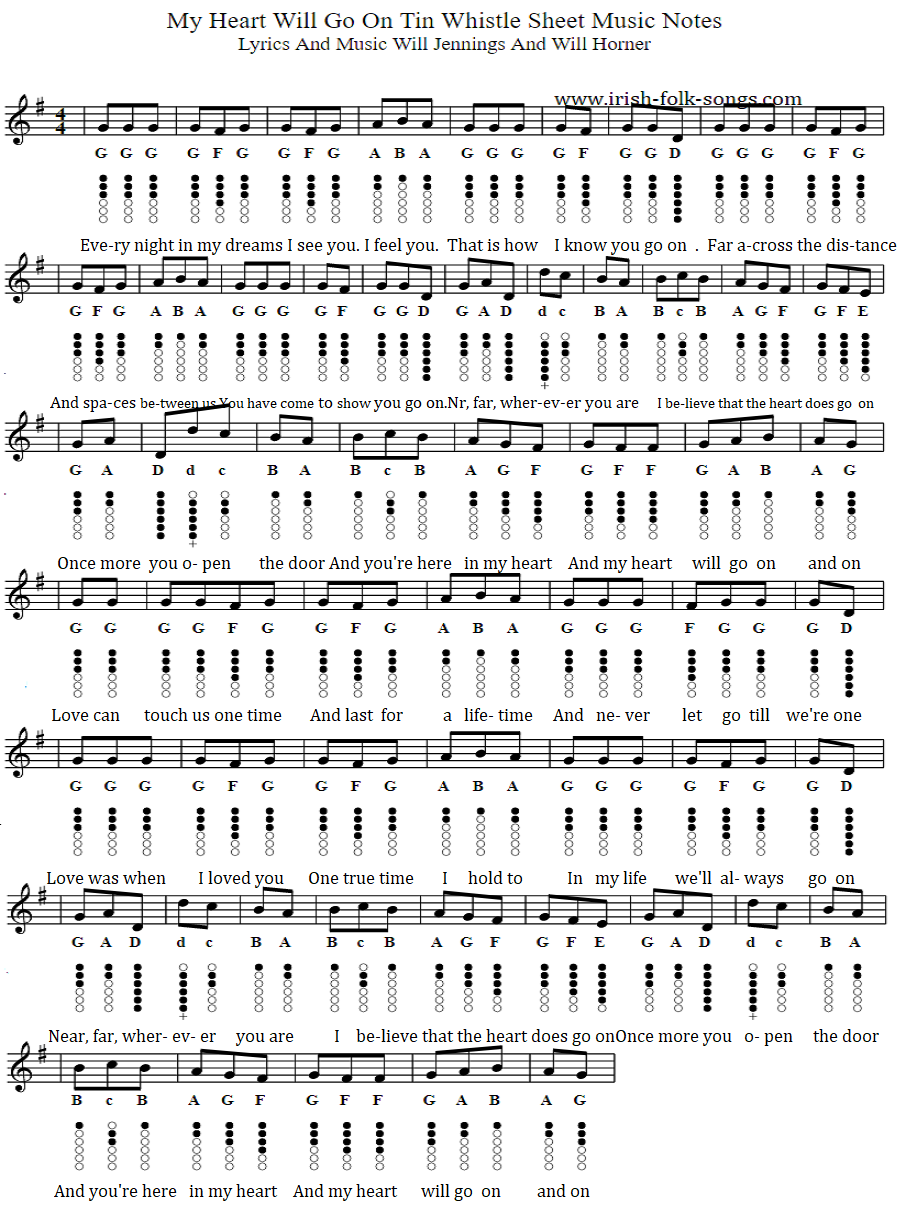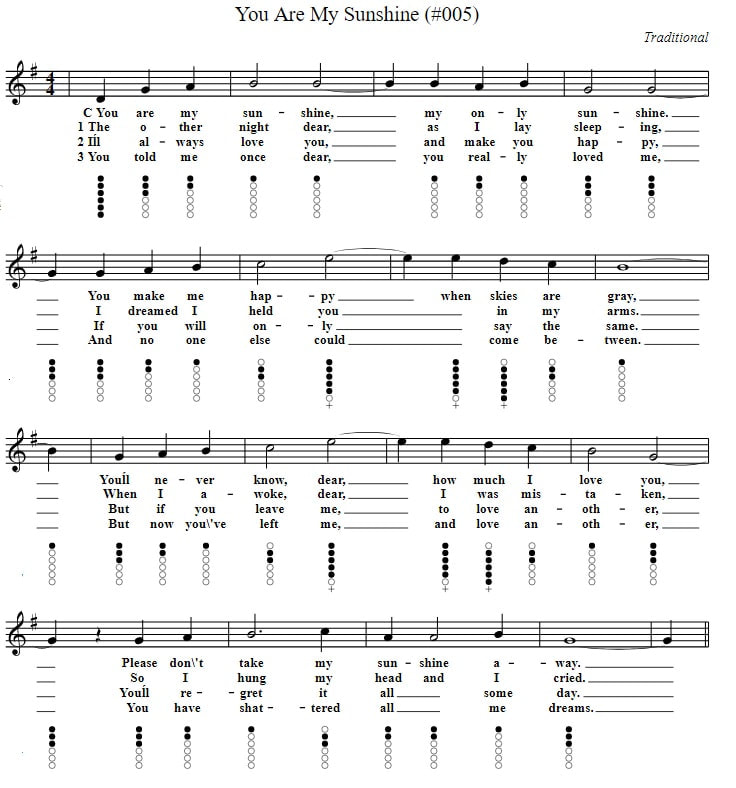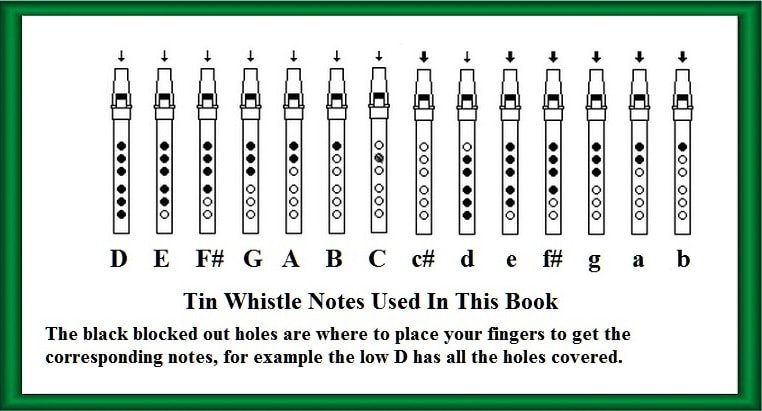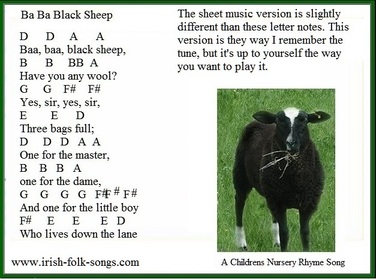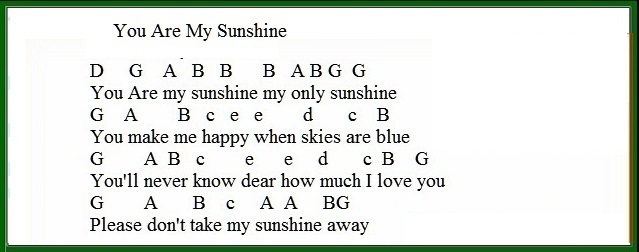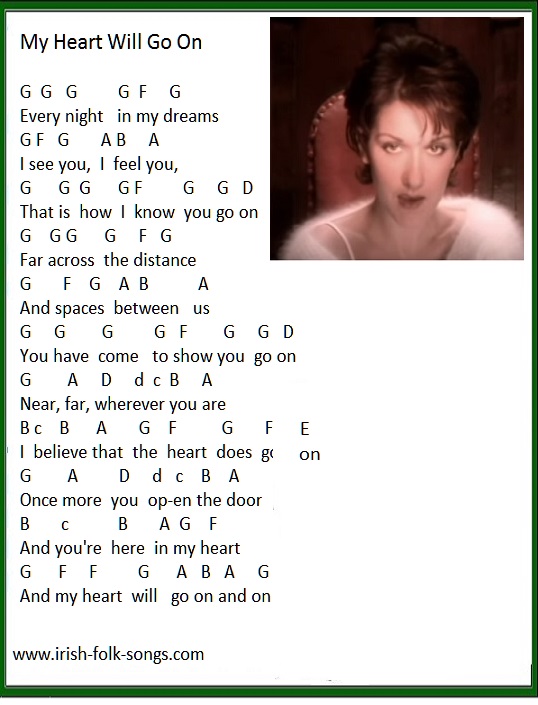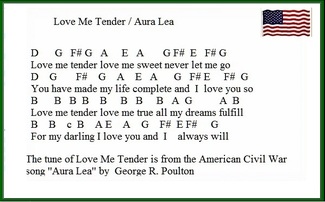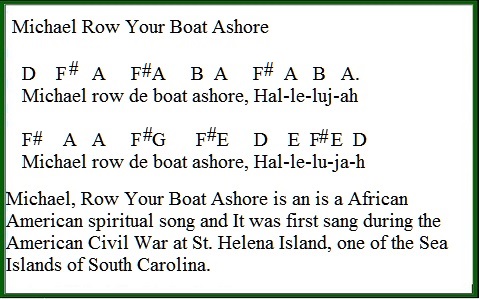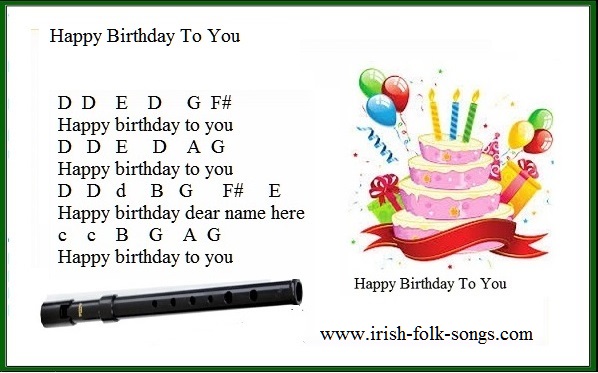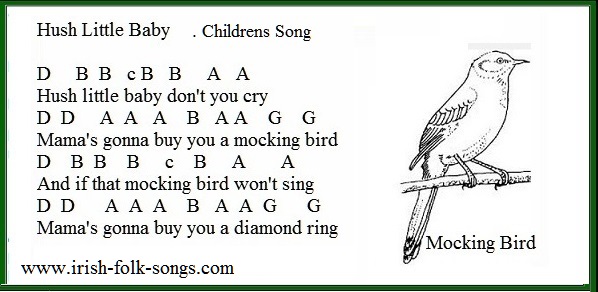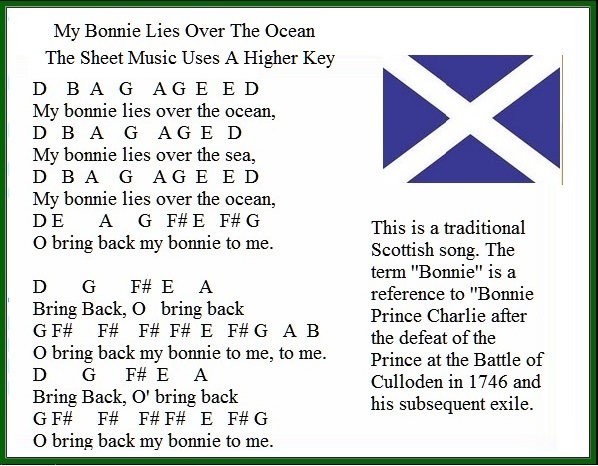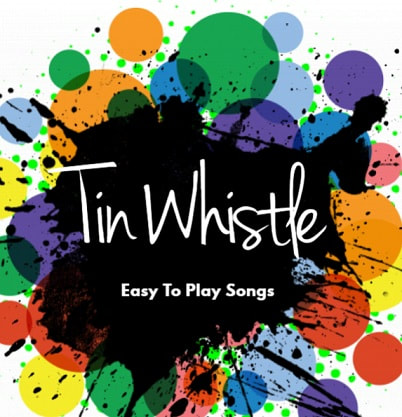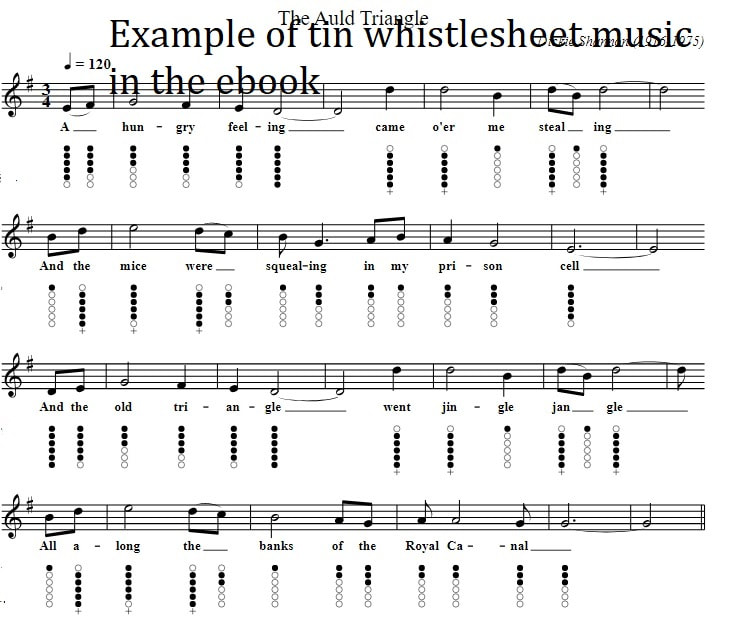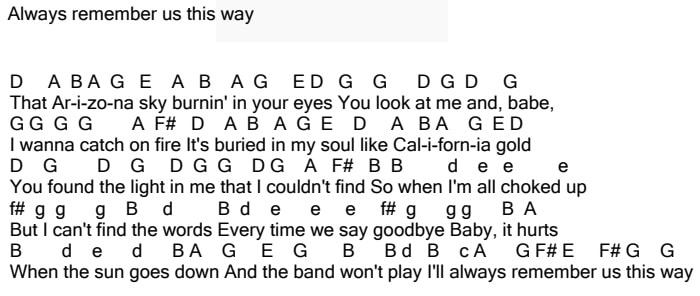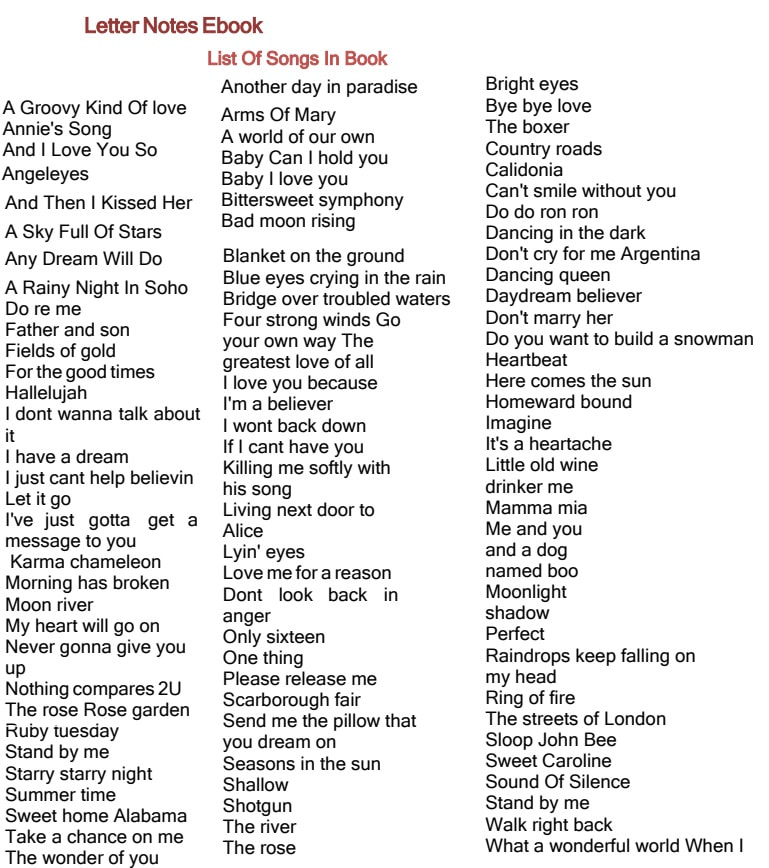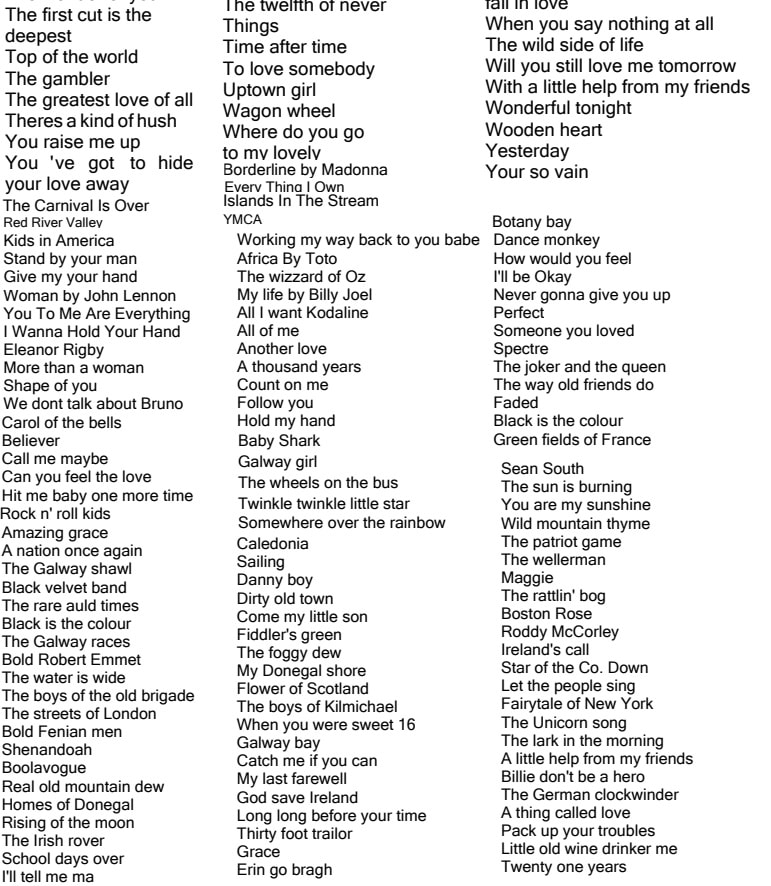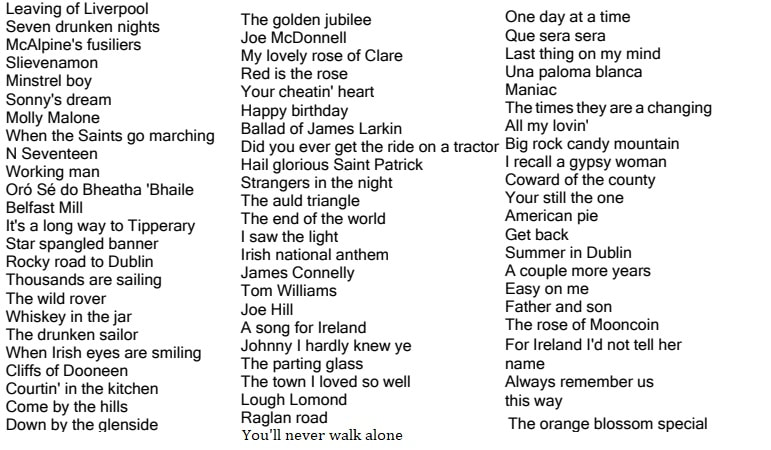Easy To Play Tin Whistle Songs
These songs are for the complete beginner of the Tin Whistle or those who used to play and forget the basics. I would advise you to learn these songs before moving on to the other songs on the site. I have included a youtube video where I slowed down each song so you can follow each note I'm playing. Practise makes perfect and if you learn each line at a time you'll be up and running in no time. If your an adult, don't be afraid to play the childrens songs such as Bah Bah Black Sheep, we all have to learn the basic songs before moving on. If you haven't already been using this site you won't know the way I write the notes out, so let me explain. The notes I place over the words of the songs are in either CAPITAL LETTERS or lower case. The capital letters are for playing the notes up as far as the B and the small letters are for the one's past the b. To play the high notes such as the d and e just blow a little harder on your whistle. A little tip I tell everybody when learning a new song is to play the first line until you know it off by heart before moving on to the second line. Play the second until you have it of. The same for all the other lines. Then put the whole song together and play them till you have them off. Keep at it and never give up as you will get there in the end. Take it nice and easy.
When you see those little + signs under a note, it means blow harder to reach the note.
| easy-to-play-tin-whistle-songs-for-beginners.pdf |
Below is the list of sheet music and tin whistle songs that are in my ebooks. This is the largest collection of tin whistle songs ever put together.[over 800 songs ] Including folk, pop and trad tunes plus German And French songs along with Christmas Carols.
All of the sheet music tabs have been made as easy to play as was possible.
The price of the ebooks is €7.50 and is suitable for viewing on Amazon Kindle
All of the sheet music tabs have been made as easy to play as was possible.
The price of the ebooks is €7.50 and is suitable for viewing on Amazon Kindle
Scroll down to see the full list of songs and tunes in the PDF
Letter Notes Ebook Of Songs For Complete Beginners
A lot of learners would rather use letter notes than tabs for playing. That's why I created the below ebook of songs.
All the notes are set out just like the example shown below and will be for the first verse only unless other verses or the chorus uses different notes.
The price is €7.95 and there about 250 songs included.
All the notes are set out just like the example shown below and will be for the first verse only unless other verses or the chorus uses different notes.
The price is €7.95 and there about 250 songs included.
Music is a universal language that has been a part of human culture for centuries. From ancient times to modern day, music has played a significant role in bringing people together, expressing emotions, and providing entertainment. Apart from its cultural and social importance, music has also been proven to have numerous benefits on an individual's physical, mental, and emotional well-being. In this thesis, we will explore the various benefits of playing music and how it can positively impact an individual's life.
One of the most significant benefits of playing music is its positive impact on brain development and cognitive function. Research has shown that learning to play an instrument can improve memory, concentration, and coordination. Playing music involves using both hemispheres of the brain, which strengthens the connections between them, leading to improved overall brain function. This is especially beneficial for children, as learning to play an instrument at a young age can enhance their learning abilities and academic performance. In fact, a study conducted by the University of Kansas found that students who participate in music education score higher on standardized tests, have better grades, and are more likely to attend college.
Additionally, playing music has been linked to improved emotional well-being. Music has the power to evoke emotions and can act as a form of therapy for individuals dealing with stress, anxiety, or depression. Playing music has been found to reduce levels of cortisol, a stress hormone, and increase the production of endorphins, which are responsible for promoting feelings of happiness and relaxation. This is why music is often used in various forms of therapy, such as music therapy, to help individuals cope with mental health issues.
Furthermore, playing tin whistle has physical benefits as well. It is a form of exercise that requires finger dexterity, hand-eye coordination, and breath control. This can improve motor skills and coordination, especially in children. Playing wind instruments also helps strengthen respiratory muscles, leading to better lung capacity and breathing. This is particularly beneficial for individuals with asthma or other respiratory issues.
Moreover, playing music can also have a positive impact on social skills and relationships. Learning to play an instrument with others can promote teamwork, communication, and cooperation. It also provides a sense of belonging and community, especially for individuals who may feel isolated or have a difficult time making friends. Playing in a band or orchestra also teaches individuals how to follow a leader, take direction, and work towards a common goal, which are essential skills in any social setting.
Another benefit of playing music is its ability to improve self-confidence and self-esteem. Learning to play an instrument takes time, dedication, and patience. As individuals progress in their musical journey and master new skills, they gain a sense of accomplishment and pride in their abilities. This can have a significant impact on their self-esteem and confidence, which can then translate into other aspects of their life.
Furthermore, playing music has been shown to have a positive impact on aging and brain health. As individuals age, their brain's cognitive abilities naturally decline. However, studies have found that playing music can slow down this decline and even prevent age-related cognitive disorders, such as dementia and Alzheimer's disease. This is because playing music stimulates the brain and promotes the growth of new neural connections, which can help maintain brain function and memory.
In conclusion, the benefits of playing music including the tin whistle are numerous and far-reaching. From improving brain function and emotional well-being to promoting physical health and social skills, music has a profound impact on an individual's life. It is a versatile and accessible form of self-expression and creativity that can bring people together, bridge cultural divides, and enrich our lives in countless ways. Therefore, it is essential to recognize the value of music and encourage its cultivation in individuals of all ages.
One of the most significant benefits of playing music is its positive impact on brain development and cognitive function. Research has shown that learning to play an instrument can improve memory, concentration, and coordination. Playing music involves using both hemispheres of the brain, which strengthens the connections between them, leading to improved overall brain function. This is especially beneficial for children, as learning to play an instrument at a young age can enhance their learning abilities and academic performance. In fact, a study conducted by the University of Kansas found that students who participate in music education score higher on standardized tests, have better grades, and are more likely to attend college.
Additionally, playing music has been linked to improved emotional well-being. Music has the power to evoke emotions and can act as a form of therapy for individuals dealing with stress, anxiety, or depression. Playing music has been found to reduce levels of cortisol, a stress hormone, and increase the production of endorphins, which are responsible for promoting feelings of happiness and relaxation. This is why music is often used in various forms of therapy, such as music therapy, to help individuals cope with mental health issues.
Furthermore, playing tin whistle has physical benefits as well. It is a form of exercise that requires finger dexterity, hand-eye coordination, and breath control. This can improve motor skills and coordination, especially in children. Playing wind instruments also helps strengthen respiratory muscles, leading to better lung capacity and breathing. This is particularly beneficial for individuals with asthma or other respiratory issues.
Moreover, playing music can also have a positive impact on social skills and relationships. Learning to play an instrument with others can promote teamwork, communication, and cooperation. It also provides a sense of belonging and community, especially for individuals who may feel isolated or have a difficult time making friends. Playing in a band or orchestra also teaches individuals how to follow a leader, take direction, and work towards a common goal, which are essential skills in any social setting.
Another benefit of playing music is its ability to improve self-confidence and self-esteem. Learning to play an instrument takes time, dedication, and patience. As individuals progress in their musical journey and master new skills, they gain a sense of accomplishment and pride in their abilities. This can have a significant impact on their self-esteem and confidence, which can then translate into other aspects of their life.
Furthermore, playing music has been shown to have a positive impact on aging and brain health. As individuals age, their brain's cognitive abilities naturally decline. However, studies have found that playing music can slow down this decline and even prevent age-related cognitive disorders, such as dementia and Alzheimer's disease. This is because playing music stimulates the brain and promotes the growth of new neural connections, which can help maintain brain function and memory.
In conclusion, the benefits of playing music including the tin whistle are numerous and far-reaching. From improving brain function and emotional well-being to promoting physical health and social skills, music has a profound impact on an individual's life. It is a versatile and accessible form of self-expression and creativity that can bring people together, bridge cultural divides, and enrich our lives in countless ways. Therefore, it is essential to recognize the value of music and encourage its cultivation in individuals of all ages.
